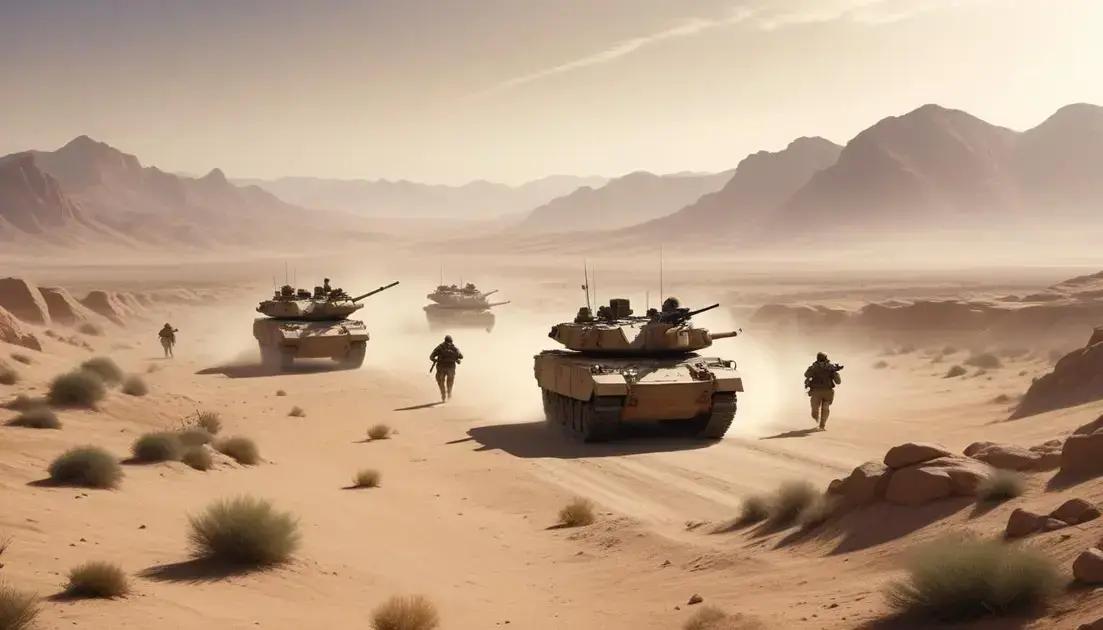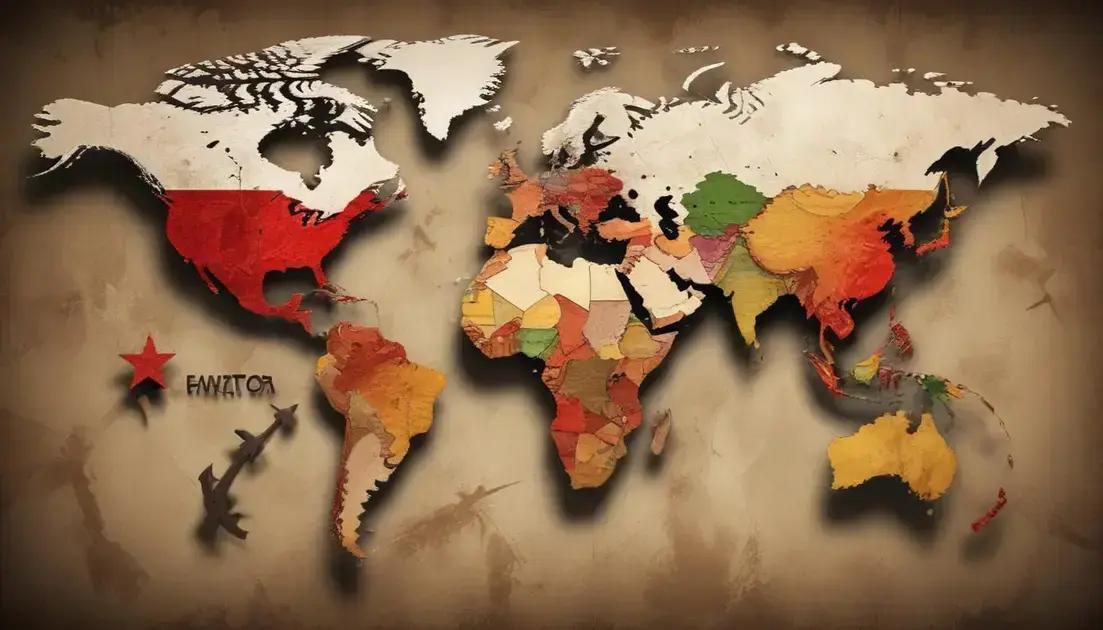
Bin Laden Killed: Symbolic End of Al Qaeda
The death of Bin Laden significantly impacted terrorism and public perception. It resulted in shifts within groups like Al Qaeda, leading to the emergence of new factions. While many feel safer, concerns about safety and bias against certain communities have risen. The global community has increased cooperation to combat new threats, emphasizing the need for awareness and understanding. Ultimately, the situation remains complex, and effective responses require engagement and unity within societies to address evolving challenges.
Terrorism has shaped global policies for decades. The recent news about Bin Laden’s death brings us back to the ongoing struggles against terror. How will this shape the future?
The Operation
The operation to eliminate Bin Laden was a significant chapter in the fight against terrorism. It took place in Pakistan and was carefully planned over months. The mission was not only about capturing him but also about gathering important intelligence.
Planning the Mission
Intelligence agencies worked hard to track Bin Laden’s location. Using technology like aerial surveillance and signals intelligence was crucial. These tools helped pinpoint his compound in Abbottabad, Pakistan, where he was hiding.
The Execution
The U.S. Navy SEALs conducted the raid on May 2, 2011. They used helicopters to approach the compound stealthily. This method ensured they could surprise Bin Laden and minimize any chance of resistance.
Challenges Faced
During the operation, there were many challenges. One helicopter experienced mechanical failure and crashed. Quick thinking and teamwork ensured the mission continued despite this setback, leading to the successful elimination of the target.
Aftermath of the Operation
After Bin Laden was killed, his body was taken for identification. The U.S. government made a decision to bury him at sea to prevent any burial site from becoming a shrine. This choice sparked discussion over ethics and respect.
The operation had wide-reaching effects. It boosted morale in the U.S. and sent a strong message to terrorists worldwide. Some viewed it as a turning point in the ongoing battle against terrorism.
Impact on Al Qaeda
The death of Bin Laden had a major impact on Al Qaeda. It marked a significant blow to the organization. Many saw it as a sign that terrorism could be fought effectively.
Leadership Changes
With Bin Laden gone, Al Qaeda had to adjust its leadership. New leaders emerged in his absence. Some were more radical, while others tried to steer the group towards unity.
Operational Shifts
Al Qaeda had to rethink its strategies after the raid. The group faced pressure to regroup and find new safe havens. They shifted focus to carry out smaller, more decentralized attacks.
Increased Surveillance
The operation raised concerns about terrorist activities. Governments worldwide increased their surveillance of suspected groups. This made it harder for Al Qaeda to operate without detection.
Growth of Other Groups
While Al Qaeda faced challenges, other groups like ISIS began to rise. They capitalized on the chaos in parts of the Middle East. Some former Al Qaeda members joined these new factions.
Despite setbacks, Al Qaeda remains a threat. Their ability to adapt to the changing landscape is concerning. The struggle against terrorism continues to evolve.
Responses from World Leaders
The killing of Bin Laden drew strong responses from world leaders. Many praised the U.S. for its decisive action. They saw it as a victory in the ongoing fight against terrorism.
U.S. Administration’s Reaction
President at the time expressed pride in the successful mission. He spoke about how it showed commitment to protecting Americans and fighting terror. The operation boosted his administration’s approval ratings.
International Support
Many allies in Europe and beyond sent congratulations. Leaders like David Cameron and Nicolas Sarkozy recognized the importance of this achievement. They emphasized the need to continue working together against terrorism.
Concerns and Criticism
While there was support, some voiced concerns. Critics worried about the implications for international law. They questioned the ethics of carrying out a mission in a sovereign nation without consent.
Long-Term Impact on Relations
The operation impacted U.S. relations with various countries. It raised questions about military actions and their legality. Some nations worried about being caught in similar situations.
Despite concerns, the message was clear: global leaders remained united against terrorism. The world watched closely, as future actions would shape international policies.
The Future of Terrorism
The landscape of terrorism continues to shift. With Bin Laden’s death, many wonder what lies ahead. New leaders and groups are emerging, which changes the game.
Rise of New Factions
As Al Qaeda faced challenges, groups like ISIS gained traction. They took advantage of political instability in certain regions. This created opportunities for new recruits and a fresh wave of violence.
Technological Advances
Technology plays a big role in the future of terrorism. Terrorists use social media for recruitment and propaganda. This makes it easier to spread fear and radicalize young people around the world.
Global Response and Adaptation
Governments need to adapt to these changes. Increased cooperation between countries is essential. Sharing intelligence can help track and prevent terror plots before they happen.
Public Awareness
Raising public awareness about terrorism is crucial. Education can help communities recognize signs of radicalization. More informed citizens can contribute to safety and support government efforts.
As we look ahead, the fight against terrorism remains complex and ongoing. Adapting to new threats will be key in ensuring global security.
Public Perception
The public perception of terrorism has changed over the years. Events like the death of Bin Laden shape how people view safety and security. Many feel more secure, while others worry about the future.
Increased Awareness
After major attacks, people become more aware of threats around them. News coverage highlights the dangers, leading to a sense of vulnerability. This can cause anxiety in everyday life.
Support for Counter-Terrorism Measures
Most people support government actions against terrorism. They want to feel safe in their communities. However, some question how far these measures should go. Balancing safety with personal freedoms is a hot topic.
Fear and Misunderstanding
Fear can lead to misunderstanding about certain groups. Some people develop biases against specific communities. This can fuel prejudice and discrimination, which is harmful to society.
Community Engagement
Communities are taking steps to combat fear and build understanding. Many organizations promote dialogue and cooperation. They work to educate the public about diversity and inclusion.
Public perception of terrorism is complex and evolving. As new threats emerge, it is essential to foster understanding and support for effective responses.
Conclusion
In conclusion, the impact of Bin Laden’s death on terrorism and public perception has been significant. It has reshaped how countries deal with threats and how communities react to safety. While many feel safer, some still carry fears influenced by events and media.
As new groups rise and technology evolves, staying informed and understanding these changes is essential. People must engage with one another to foster a sense of community and trust. This way, we can build a safer world while respecting everyone’s rights and freedoms.
Ultimately, the fight against terrorism involves not just governments but also the support and awareness of the public. Together, we can create a positive environment that promotes safety and unity amidst the challenges we face.


